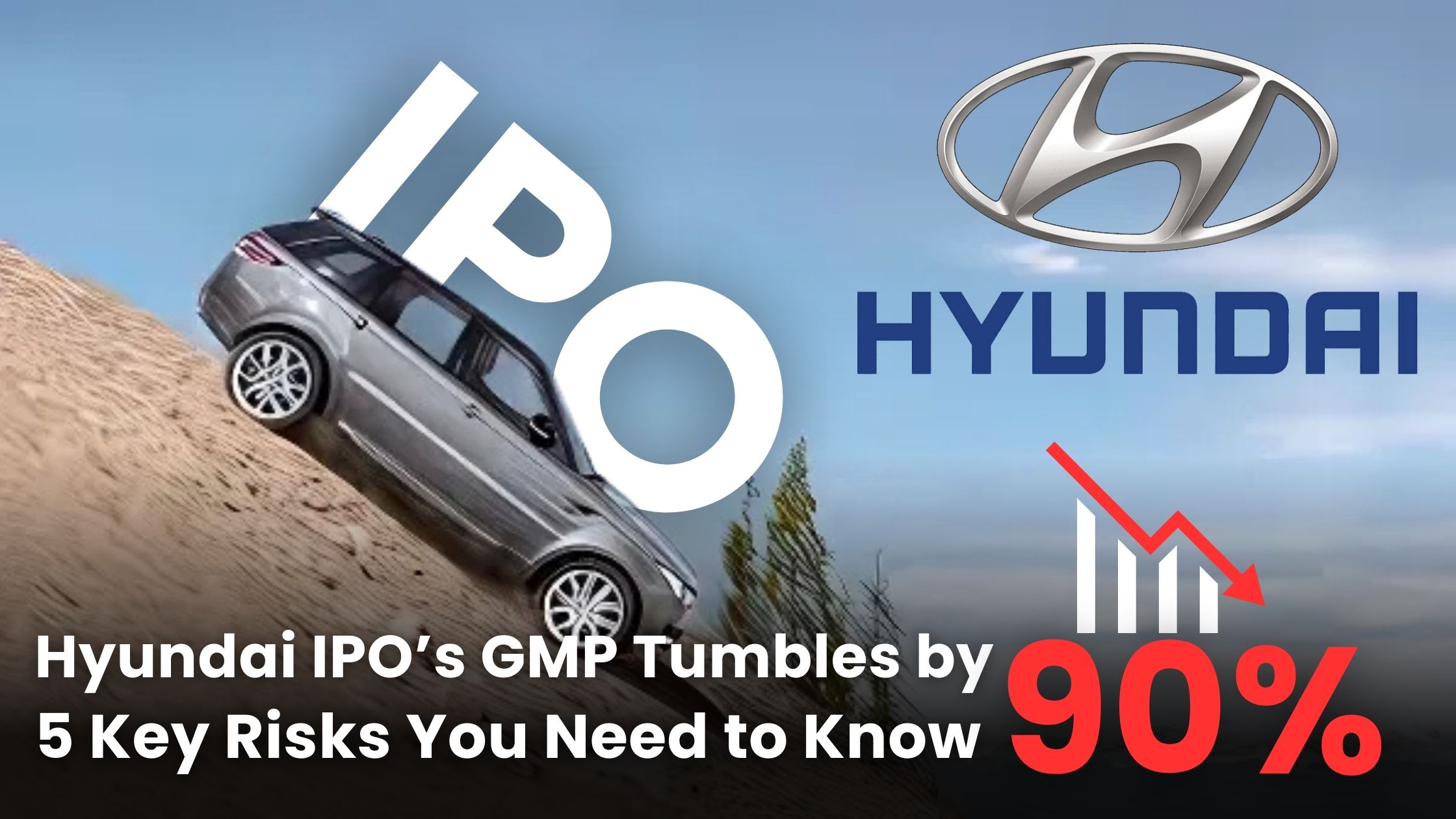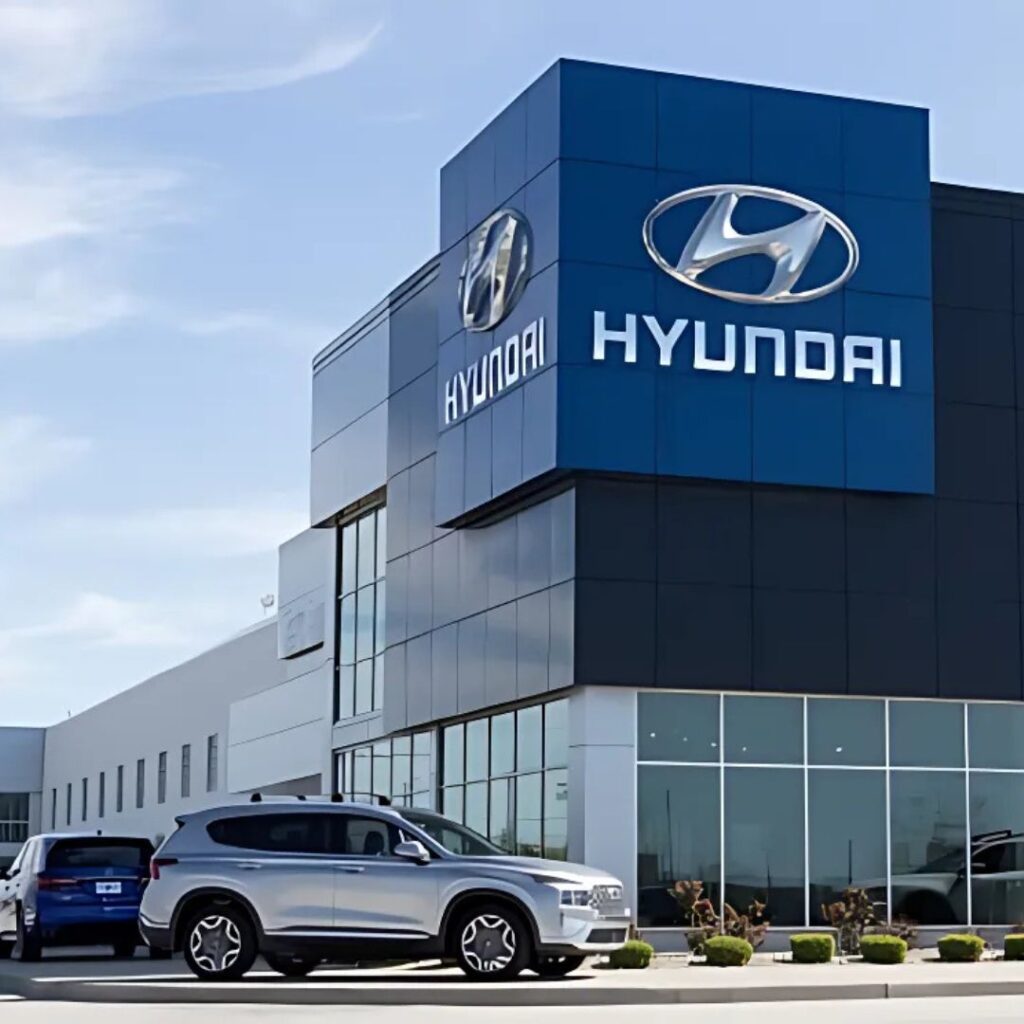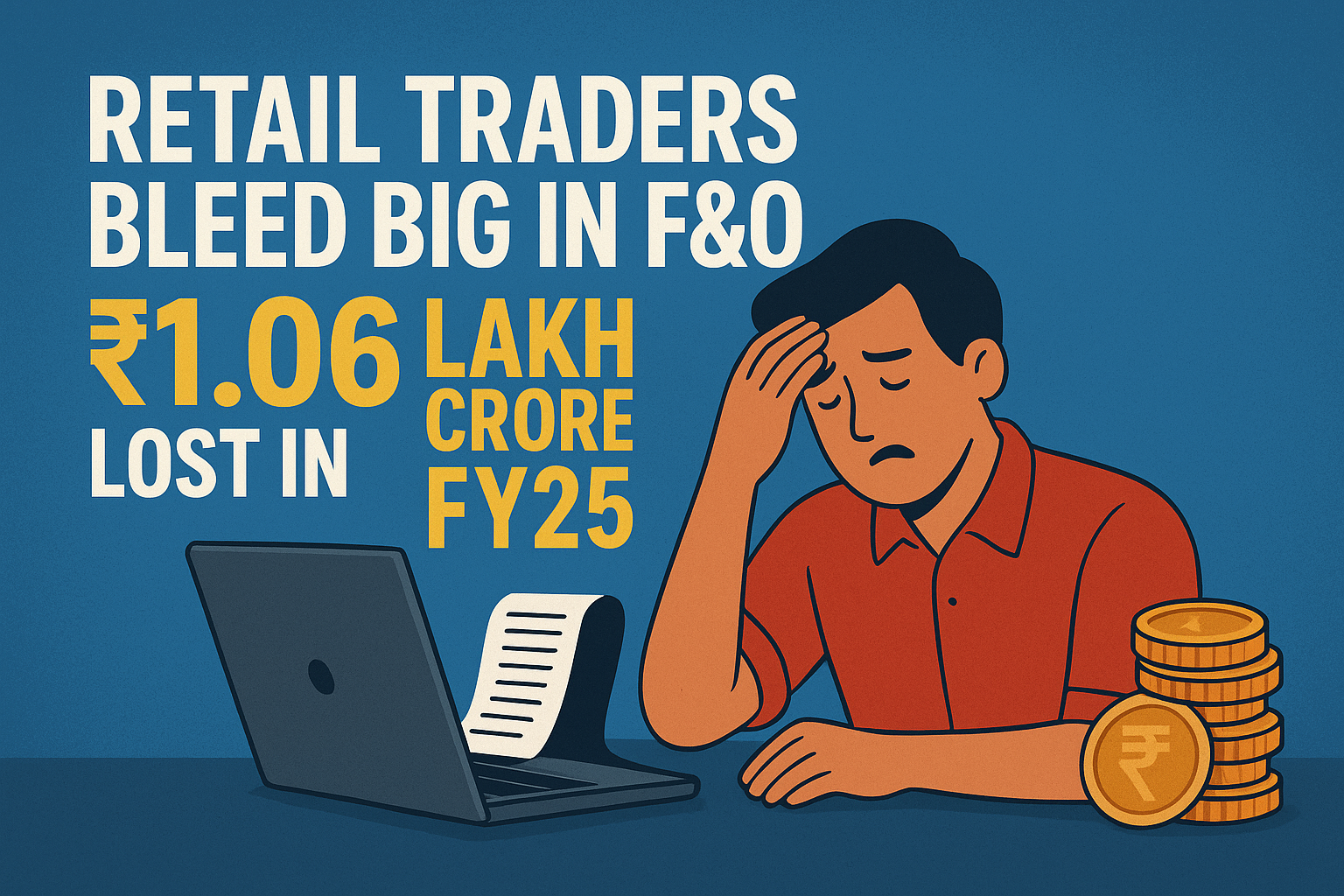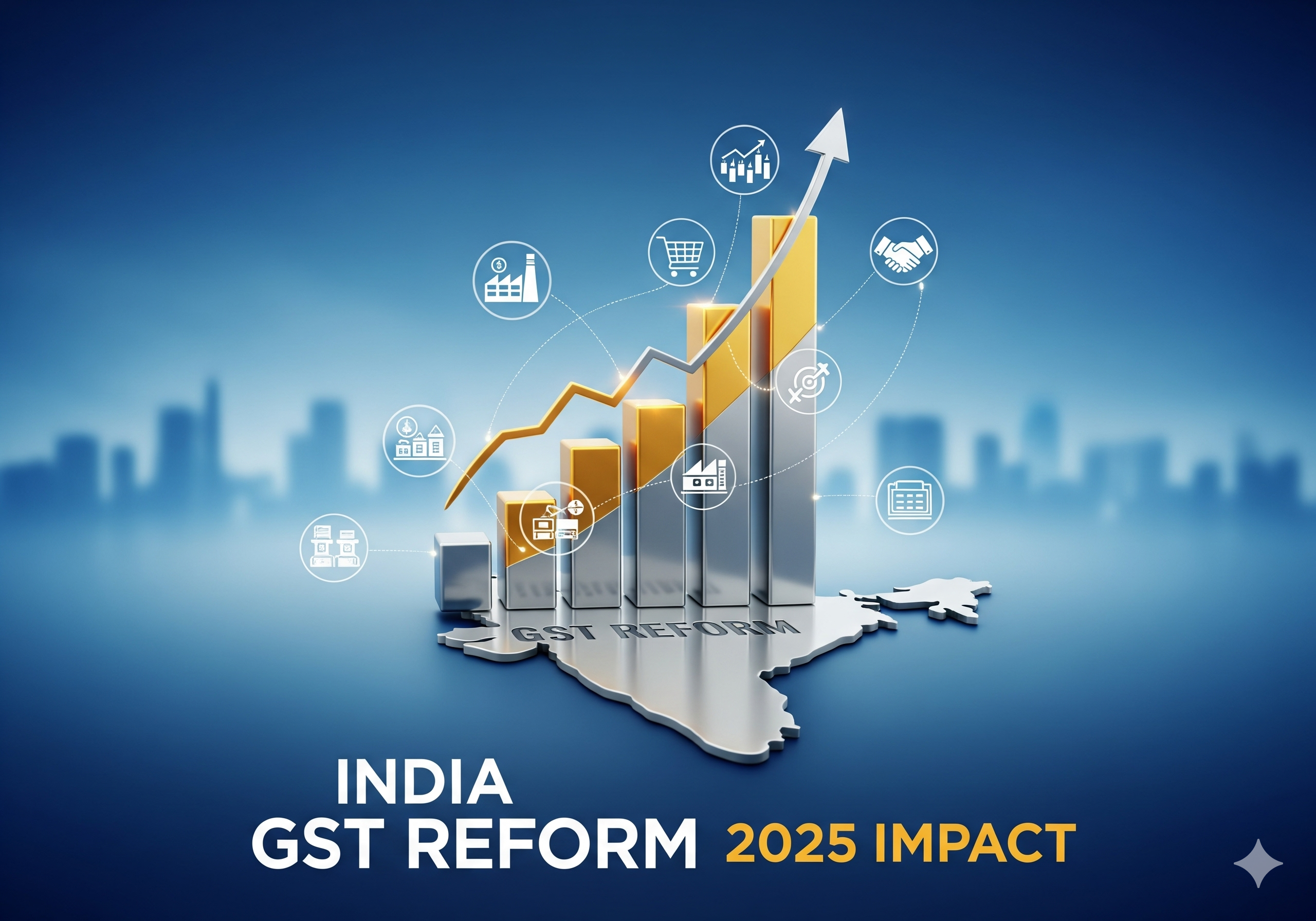
The Hyundai Motor India IPO is set to make waves as one of the largest automotive IPOs in Indian history, scheduled to open on October 15, 2024. With a market capitalization expected between ₹1,59,258 crore and ₹1,61,600 crore, it’s an opportunity investors are eyeing closely. However, despite the high stakes, recent data shows that the Hyundai IPO GMP (Grey Market Premium) has taken a significant hit, dropping from over ₹500 to just ₹45.
In this article, we’ll dive deep into the reasons behind the Hyundai IPO GMP crash, examine the risks involved, and discuss the opportunities this landmark IPO presents. Whether you’re an experienced IPO investor or just starting out, this guide will provide you with the insights you need.
Hyundai IPO Overview: A Historic Offering
Hyundai Motor India, the country’s second-largest car manufacturer after Maruti Suzuki, is all set for an Offer for Sale (OFS) where the parent company, Hyundai Motor Co., will sell a 17.5% stake in its Indian subsidiary. The IPO is expected to raise around ₹27,870 crore, valuing the Indian entity at close to ₹1.6 lakh crore. This IPO will not involve the issuance of new shares, meaning the proceeds will go to the parent company and existing shareholders, rather than fueling new growth for Hyundai India.
With Hyundai being a global giant, this IPO has piqued the interest of investors. However, despite the initial buzz, the Hyundai IPO GMP crash has left many wondering whether this is still a lucrative opportunity.

5 Key Reasons Behind Hyundai IPO’s GMP Crash
The Grey Market Premium (GMP) serves as an indicator of investor sentiment before an IPO goes live. Hyundai’s IPO saw a GMP surge to over ₹500 early on, but it has since plummeted to just ₹45, a drop that has raised concerns among potential investors.
Investors need to carefully consider the risks involved in Hyundai’s IPO before making a decision. Here are some 5 key players behind the Hyundai IPO GMP crash:
-
No Fresh Issue of Shares: Unlike many IPOs, Hyundai Motor India’s offering is an Offer for Sale, meaning the company itself will not receive any funds from the IPO. This dampens investor enthusiasm, as the money raised will not be used for new growth projects but will instead go to the parent company and existing shareholders.
-
Large Dividend Payouts: Investors were concerned when Hyundai Motor India announced a hefty dividend payout to the parent company in South Korea—₹15,435.84 crore in FY24. This was equivalent to 22% of the company’s total revenue, raising eyebrows about the financial health and future investment potential of Hyundai India.
-
Ongoing Royalty Payments: Hyundai Motor India pays 3.5% of its sales revenue to its parent company, Hyundai Motor Co., as a royalty fee. These payments, tied to the usage of Hyundai’s trademarks, eat into the company’s profitability. Concerns have been raised that any increase in royalty fees could further diminish the profit margins.
-
Internal Competition: The rivalry between Hyundai Motor India and Kia Motors India—both of which are part of the Hyundai Group—has created a conflict of interest. For example, models like the Hyundai Creta and Kia Seltos compete directly in the same market segments, further complicating Hyundai’s market positioning.
-
Sluggish Auto Demand: The overall slowdown in the automotive sector, coupled with seasonal dips in demand during Q2 FY25, has also contributed to the drop in Hyundai’s GMP. A 20% decline in passenger vehicle sales, impacted by factors like heavy rainfall and a prolonged Shradh period, has made investors wary of investing in the auto sector.
Hyundai IPO Expected Price: What Investors Can Anticipate
The Hyundai IPO expected price is set between ₹1,865 and ₹1,960 per share. Based on this price range, Hyundai Motor India’s market cap would stand at approximately ₹1.6 lakh crore. Compared to its peers in the automotive industry, Hyundai’s valuation metrics, including a price-to-earnings (P/E) ratio of around 26.3 times its FY24 earnings, appear to be on par with expectations.
However, given the GMP crash and broader concerns about the automotive industry, the pricing seems aggressive for some analysts. Despite this, brokerage firms are still giving a “Subscribe” recommendation, largely due to Hyundai’s strong brand, profitability, and leadership in the Indian car market.
Medium to Long-Term Outlook: What’s in Store for Hyundai Motor India?
Despite the Hyundai IPO GMP crash, many brokerage firms continue to advise a “Subscribe” rating, especially for long-term investors. Here’s why:
-
Innovation and EV Expansion: Hyundai Motor India is actively investing in research and development for electric vehicles (EVs) and hybrid technologies. With the Indian government pushing for sustainable mobility, Hyundai’s future in the EV market is bright. The company is expected to introduce several EV models in the near future, which could drive up revenue and profitability.
-
Capacity Expansion: Hyundai plans to boost its manufacturing capacity with an investment in the Talegaon plant, which will add production capacity of 0.17 million units by H2FY26. This expansion positions Hyundai to meet the rising demand for personal vehicles, especially as the economy stabilizes post-pandemic.
-
Strong Brand and Market Position: Hyundai Motor India holds a 14-15% market share in the Indian automotive sector, second only to Maruti Suzuki. With a strong product portfolio and continued investments in innovation, Hyundai is well-positioned to remain a key player in the Indian market.
Is the Hyundai Motor IPO Worth the Investment?
The Hyundai Motor India IPO presents a mix of risks and opportunities. While the Hyundai IPO GMP crash has raised concerns, the company’s strong market presence, investment in electric vehicles, and long-term growth strategy make it an appealing choice for long-term investors. However, potential investors should carefully weigh the risks, including the lack of fresh capital from the IPO, large dividend payouts, and internal competition.
For those looking to invest, it’s essential to monitor the auto sector’s overall recovery and Hyundai’s future EV initiatives closely. Given the Hyundai IPO expected price and its market position, this IPO could still offer substantial returns over the long term, especially as the company expands its production capacity and focuses on innovation.
Disclaimer: The information presented in this article is for informational purposes only and should not be considered financial advice. Investors are encouraged to perform their own analysis and seek professional guidance before making investment decisions.
Q7 Trading Solutions pioneers in algorithmic trading with tailored strategies for Stock options and Index options. Harnessing the power of AI and Big Data, we deliver precision in technical analysis using statistics & mathematical modeling, providing a reliable path to optimize trading outcomes. You can learn more about its prowess by joining our 28k+ strong community absolutely for FREE.




